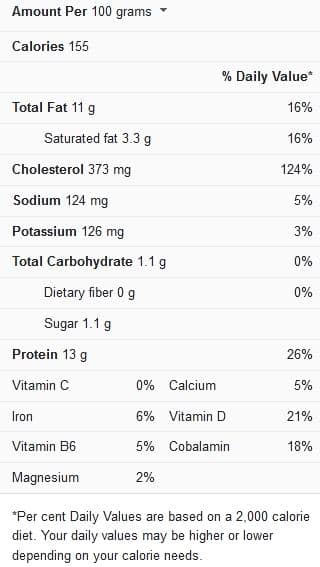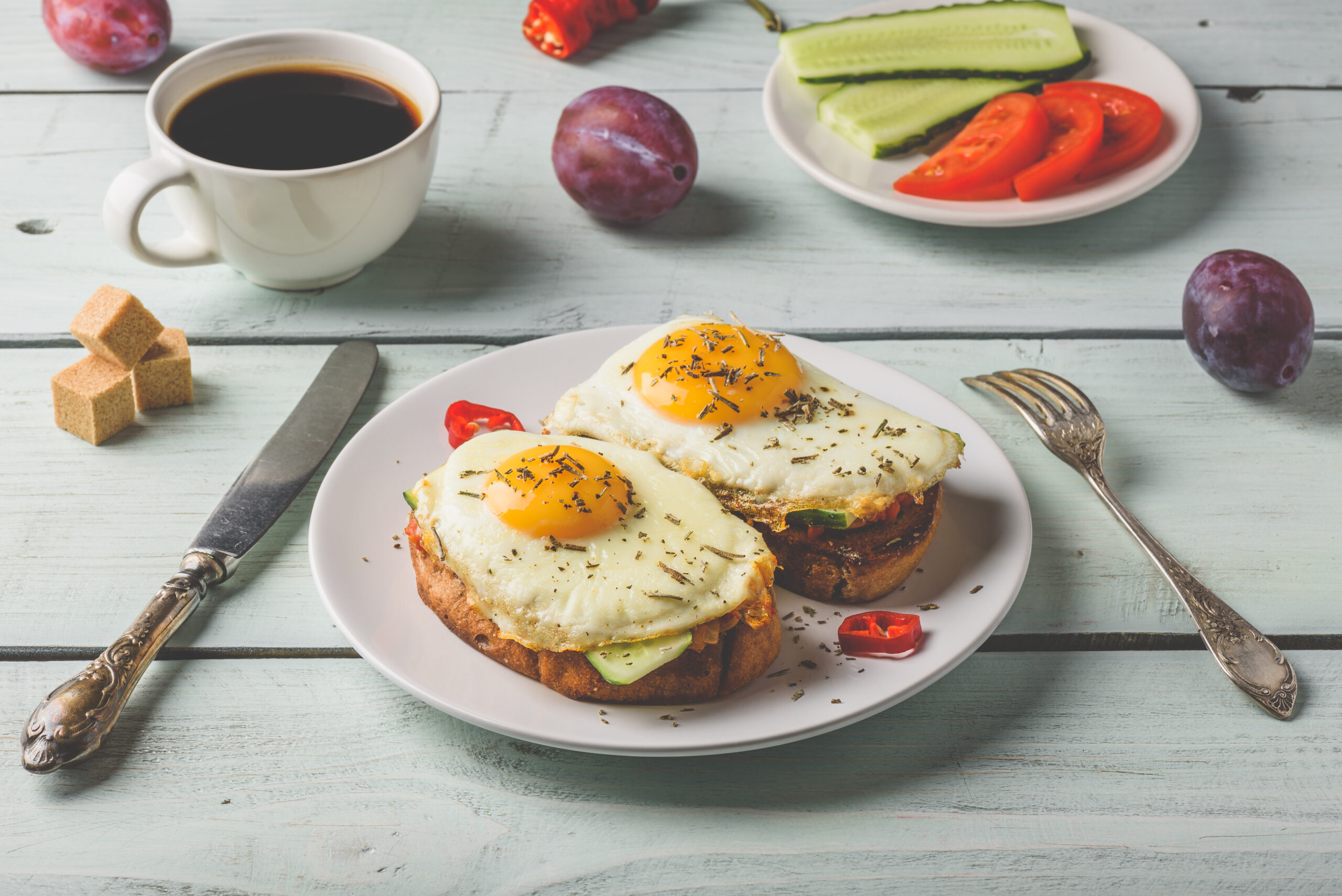Updated on October 18th, 2022
A well-cooked fried egg is one of the most beautiful things to enjoy. It can improve any meal-time dining experience, giving you loads of satisfaction. However, it is important to have the right cooking instructions that will give you just the results you’re looking for with every kind of fried egg recipe.
Over hard eggs are no exception, and if you’d like to achieve desirable results, take a cue from all the instructions, tips, and guidelines outlined in this article. Also, adhere to the timing guidelines to get the best results
Eggs Nutrition Facts

Tips for Cooking Over Hard Eggs
When cooking over hard eggs, there are several helpful tips you should keep in mind if you want to achieve desirable results:
Use fresh eggs – When cooking over hard eggs, it’s normal not to be so concerned with aesthetics. Still, working with the ideal ingredients is very much advised because it’s rewarding. With older eggs, their whites tend to spread as soon as they touch the pan, so using fresh eggs is much better. With the spatula, you can bring the eggs back to the center of the pan, but fresh eggs are generally simpler to work with.
Use the right pan – The pan’s surface is critical for easy removal after cooking. Choose a nonstick pan or a seasoned cast iron skillet to make cooking easier.
In a pinch, you can use a cast-iron or carbon-steel pan if you don’t own a nonstick pan. However, you’ll need to find a way to avoid burning chunks of your eggs, and an ideal way is to increase the quantity of fat you’re using.
Fat options to choose from – Butter is perhaps the most typical and, in our opinion, the ideal option for frying eggs. The results always taste amazing, but there are plenty of alternative options if butter isn’t exactly to your taste. Olive oil is one of such good options; it will still add flavor and give your eggs a wonderfully golden crisp to the edges.
Vegetable oil will suffice if you don’t have any other options, although it is not recommended. On the other hand, you’re good to go if you have some bacon grease (the holiest of fats).
Slower is better – The key is to cook your eggs gradually over low heat. Because you don’t have to worry about overcooking the yolk with over-hard egg recipes, it’s less of an issue when compared with other ways to prepare eggs. However, it’s always preferable to work with lower heat levels when it comes to temperature.
Achieving the perfect over hard eggs – When cooking over hard eggs, you can break the yolk using a spatula or fork while waiting for the structure of the eggs to set or just flipping as is. To make excellent over-hard eggs, start by cooking the eggs the normal way you would cook sunny side up eggs in a hot frying pan using a teaspoon of oil. Afterward, turn the eggs over as soon as the whites of the eggs are set and fully cooked. It normally should take 3 to 5 minutes for the eggs to reach the over-hard stage after being flipped. However, this will depend on the heat intensity and the desired degree of “over hard-ness” you prefer.
Although the egg yolk has to be cooked thoroughly and not runny, it’s still okay if it’s soft. Suppose you want the yolk to be completely cooked through, just as with a hard-boiled egg that has been boiled for a while; wait for about four or five minutes after you’ve flipped the egg over.
Storage and reheating tips – Eggs cooked over hard can typically be stored in the refrigerator for up to three days. They’re perfect for midday high-protein snacks or as a filling for sandwiches when you want a light meal for lunch or dinner. You may put it directly from the fridge into a salad.
These eggs can be reheated in a skillet. To do this, warm them for a couple of minutes on each side until they get warmed through, or you can microwave them for 20 seconds at a time.
View this post on Instagram
Cooking Time for Over Hard Eggs
The ideal timing for over hard egg recipes are described in the table below:
Cooking Procedure
Cooking Time
Cooking over hard eggs
4 to 6 minutes
PrintOver Hard Eggs (1 Serving)
Ingredients
Instructions
- Heat the oil over medium-low (almost low) heat in a small nonstick skillet. Toss in the butter. Swirl the butter around the pan after it begins to melt and bubble. Pour in the eggs, taking care not to rupture the yolks. Season with some salt and pepper to taste.
- Cook the eggs for about 2 to 3 minutes, or until the egg whites are mostly hard. At this time, the yolk should still have a liquid consistency. Poke the yolk with a spatula to break it if desired. As a result, it will spread out and cook faster.
- Flip the egg with a thin spatula and cook for another 2 to 3 minutes, or until the yolk becomes firm and cooked through fully.
- Afterward, take the eggs out of the pan and serve as desired
This recipe for over-hard eggs is quick and easy, and you’ll achieve just the right results as desired. If you’d like to see more ideas for over-hard egg recipes, you may want to see this video recipe.
Notes
- It’s fine if you’re not an expert at cracking eggs. Before putting them in the pan, break them into a bowl. It’ll be easier this way to remove any eggshells, and it will also be easier to put the eggs in the pan without getting the yolks split up.
- If you have a decent nonstick pan, less butter or oil can be used.
